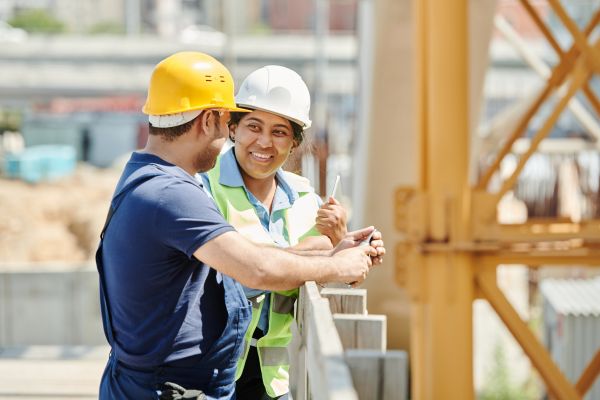Builders play a pivotal role in the construction industry, turning architectural plans into tangible structures. This article looks into the comprehensive builder job description exploring their key responsibilities, essential skills, and the impact they have on the built environment.
Builder Job Description
Role and Responsibilities
A. Project Planning and Management
Builders are instrumental in project planning, collaborating with architects and engineers to interpret blueprints and ensure the feasibility of construction projects. They meticulously plan each phase, considering timelines, resources, and potential challenges.
B. Construction Execution
The core responsibility of a builder is to oversee the physical construction process. This involves coordinating with subcontractors, managing construction crews, and ensuring that the project adheres to safety regulations and quality standards. Builders also monitor progress and address any issues that may arise during construction.
C. Budgeting and Cost Control
Builders are entrusted with managing project budgets and ensuring cost-effectiveness. They must be adept at estimating material costs, negotiating with suppliers, and implementing cost-saving measures without compromising quality.
D. Quality Assurance
Maintaining high-quality construction is paramount. Builders conduct regular inspections, ensuring that the work meets industry standards and client expectations. They address any deviations promptly, ensuring the final product aligns with the initial specifications.
E. Communication and Collaboration
Effective communication is a cornerstone of successful construction projects. Builders liaise with various stakeholders, including architects, subcontractors, clients, and regulatory authorities. Clear communication ensures that everyone involved is on the same page, minimizing misunderstandings and delays.
F. Environmental Considerations
In the contemporary construction landscape, builders are increasingly mindful of environmental sustainability. They integrate eco-friendly practices and materials, incorporating energy-efficient technologies and waste reduction strategies into their projects.
Essential Skills and Qualities
A. Technical Proficiency
Builders must possess a deep understanding of construction techniques, materials, and equipment. Technical proficiency enables them to make informed decisions and address challenges effectively.
B. Leadership and Team Management
Leadership skills are crucial for builders to manage construction crews and subcontractors efficiently. The ability to inspire and motivate teams contributes to a positive working environment and project success.
C. Problem-Solving Aptitude
Construction projects often present unforeseen challenges. Builders must possess strong problem-solving skills to address issues quickly, ensuring minimal impact on project timelines and budgets.
D. Attention to Detail
Precision is paramount in construction. Builders must pay meticulous attention to detail to ensure that every aspect of the project aligns with plans and specifications.
E. Adaptability
The construction industry is dynamic, and builders must be adaptable to changing circumstances. Whether it’s unexpected weather conditions or alterations to the project scope, builders need to navigate challenges with flexibility.
Frequently Asked Question
Q1: What qualifications are required to become a builder?
A1: While educational requirements vary, most builders have a combination of formal education in construction management or a related field, along with hands-on experience in the construction industry.
Q2: How is the builder’s role evolving with technological advancements?
A2: Builders are increasingly leveraging technologies like Building Information Modeling (BIM), drones, and project management software to enhance efficiency, accuracy, and collaboration in construction projects.
Q3: What safety measures do builders implement on construction sites?
A3: Builders prioritize safety by implementing measures such as regular safety training, the use of personal protective equipment (PPE), and adherence to occupational health and safety guidelines.
Q4: How do builders stay updated on industry trends and regulations?
A4: Builders stay informed by participating in industry conferences, workshops, and continuing education programs. Additionally, they actively engage with professional networks, subscribe to industry publications, and leverage online resources to stay abreast of the latest trends and regulations.
Conclusion
In the dynamic realm of construction, builders stand as the linchpin, translating architectural visions into tangible structures.
Their multifaceted role encompasses project planning, execution, budgeting, quality assurance, communication, environmental considerations, technical proficiency, leadership, problem-solving, and adaptability.
Armed with these skills, builders play a pivotal role in shaping our built environment. As the construction industry continues to evolve, builders will remain at the forefront, steering projects toward success through skill, precision, adaptability, and a commitment to excellence.






